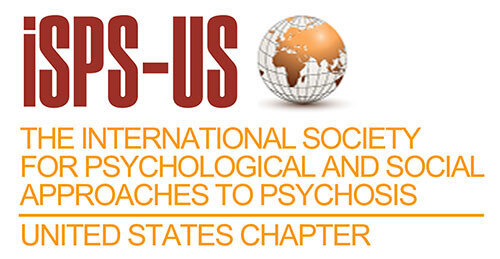What is "Psychosis?"
Welcome
If you’ve found your way here, you may be trying to make sense of experiences—your own or someone else’s—that are often called “psychosis.” Maybe you’ve been given a diagnosis, are supporting someone who has, or are simply questioning what you’ve been told about what psychosis is. You are not alone, and there are many ways to understand, relate to, and grow through these experiences.

Beyond Diagnoses
In mainstream medical classifications such as the Diagnostic and Statistical Manual of Mental Disorders (DSM) and the International Classification of Diseases (ICD), psychosis is defined as a condition involving a disconnection from reality. This may include hearing voices others don’t hear, seeing things others don’t see, holding beliefs that differ significantly from cultural norms (often called “delusions”), or having disorganized thoughts and speech. These systems often describe psychosis as a symptom of a mental illness like schizophrenia, bipolar disorder, or major depression with psychotic features.
At ISPS-US, we recognize that experiences labeled as “psychosis” can’t be fully understood through a single lens and these definitions are much too narrow.
Pluralism
Many people make sense of "psychotic" experiences in different ways, such as adaptations to trauma, spiritual experiences, sociopolitical events, reflections of social and structural violence, neurodiversity and/or illness. We embrace a principle of Pluralism in Understanding, which means honoring the diverse ways individuals and communities interpret and respond to these experiences, and supporting healing that respects those perspectives.
Why Does This Matter?
Pluralism is essential because how psychosis is understood shapes how people are treated—not just by mental health systems, but by society, families, and even themselves. A single, narrow explanation can lead to stigma, shame, and a loss of agency. For example, when psychosis is seen only as a chronic brain disease, people may be discouraged from exploring the impact of trauma, racism, or social exclusion on their experiences. It can also reinforce unequal power dynamics in mental health care, where diagnoses are imposed and individual meaning-making is dismissed. Critically, this framing places the problem entirely within the individual, rather than challenging the systems and conditions that may contribute to distress.
When the focus is solely on what is “wrong” in a person’s brain, society is let off the hook from addressing poverty, violence, housing insecurity, or isolation. At ISPS-US, we believe that experiences of psychosis often carry profound personal or social significance. Supporting people to explore and make sense of that meaning—in their own terms—is not just compassionate; it’s transformative.
Our Work
ISPS-US offers ongoing education and dialogue focused on redefining psychosis in more humane, socially aware, and person-centered ways. We center the voices of those with lived experience, foster pluralistic understandings, and highlight transformative advocacy and clinical practices that challenge conventional approaches and support meaningful change.
Example
This webinar rethinks “negative symptoms” like withdrawal or reduced motivation—not as fixed deficits, but as meaningful responses shaped by social and structural factors. Drawing on lived experience and the Rethink Negative Symptoms project, Marie Brown and Nev Jones call for a shift away from pathologizing frameworks toward approaches grounded in voice, context, and possibility.
View our upcoming webinars.
You can be part of the movement for redefining psychosis and "serious mental illness"
ISPS-US is a community of care providers, people with lived experience, family members, and advocates. Join us! Keep up to date with ISPS-US’s work, education and our Calls for Action by joining our mailing list. Be part of a movement of change-makers dedicated to redefining how we understand and respond to experiences labeled as “psychosis”—working toward systems that recognize social context, honor lived experience, and support full participation, connection, and healing.
